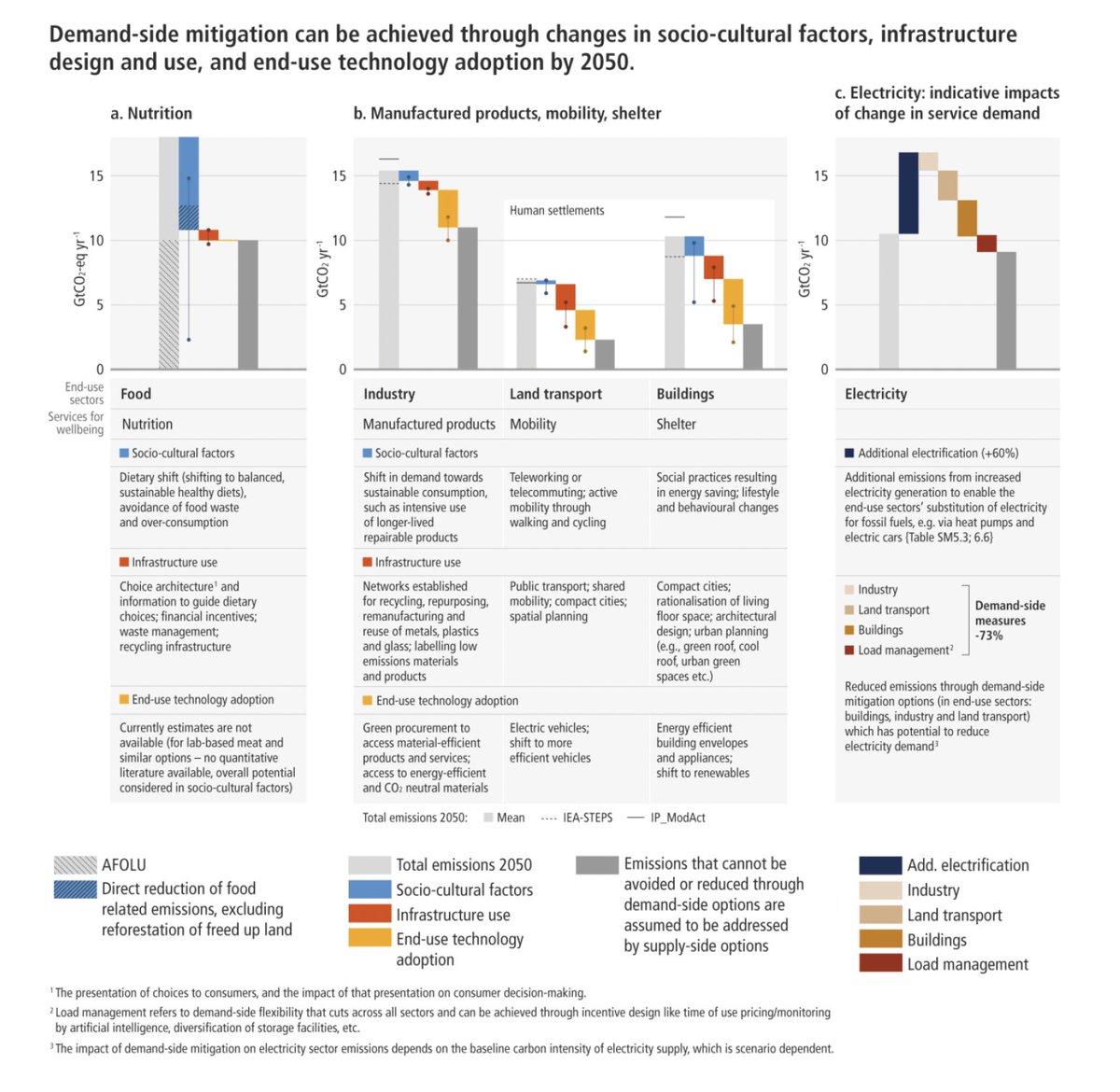
Many thanks to the @IPCC_CH WG3 authors for this essential report. Some key take-home messages: 1) despite the known urgency, greenhouse gas emissions have still increased in last decade. They are at their highest level ever. The main culprit: fossil fuels (petrol, gas, coal). 

2) For a breakdown of CO2 emissions, which need to be brought to zero for climate stabilisation, see also the @IPCC_CH WG1 report, ch5 (Fig. 5.5), explicitly showing the causes: petrol (oil), gas, coal; and land use change. ipcc.ch/report/ar6/wg1/ 

3) The @IPCC_CH WG3 report shows that we are absolutely not on track to limit global warming to 1.5°C. In fact, current policies would bring us to 3.2°C of global warming (report.ipcc.ch/ar6wg3/pdf/IPC…): 

4) For the implications of not achieving a climate stabilisation close to 1.5°C, the @IPCC_CH WG1 & WG2 & #SR15 reports have shown clearly that every 10th of a degree matters, and that any additional global warming leads to more impacts, e.g. associated with climate extremes. 

5) For a full risk assessment associated with given global warming levels, see also the @IPCC_CH WG2 report (ipcc.ch/report/ar6/wg2…). There are already irreversible impacts and there will be more above 1.5°C of global warming. 

6) Coming back to the @IPCC_CH WG3 report, there are nonetheless some positive elements showing the way forward. Most encouraging IMO is the fact that energy transition is cheap in many areas (blue part of the bars below): e.g. Wind, solar, changes in demand. 

7) Further very interesting conclusion from @IPCC_CH WG3 report: Electric vehicles offer the largest decarbonisation potential for land-based transport. This is a key message from IPCC given level of disinformation spread on this topic. Co-benefits for health are also mentioned. 

8) The WG3 report also has a careful assessment on solutions offered by AFOLU (agriculture, forestry and other land use), which have both potential and risks: 

9) Finally, the new material on demand-based mitigation is essential. It shows that major emissions reductions can be achieved through changes in demand thanks to the combination of socio-cultural factors, new infrastructure & end-use technology adoption (i.e. all are important). 

10) To conclude, this report was worth the wait: The urgency is absolutely clear, the way to go as well. Many many thanks to all our @IPCC_CH #WG3 colleagues, who have provided such an informative report for society. 🙏
report.ipcc.ch/ar6wg3/pdf/IPC…
report.ipcc.ch/ar6wg3/pdf/IPC…

• • •
Missing some Tweet in this thread? You can try to
force a refresh




